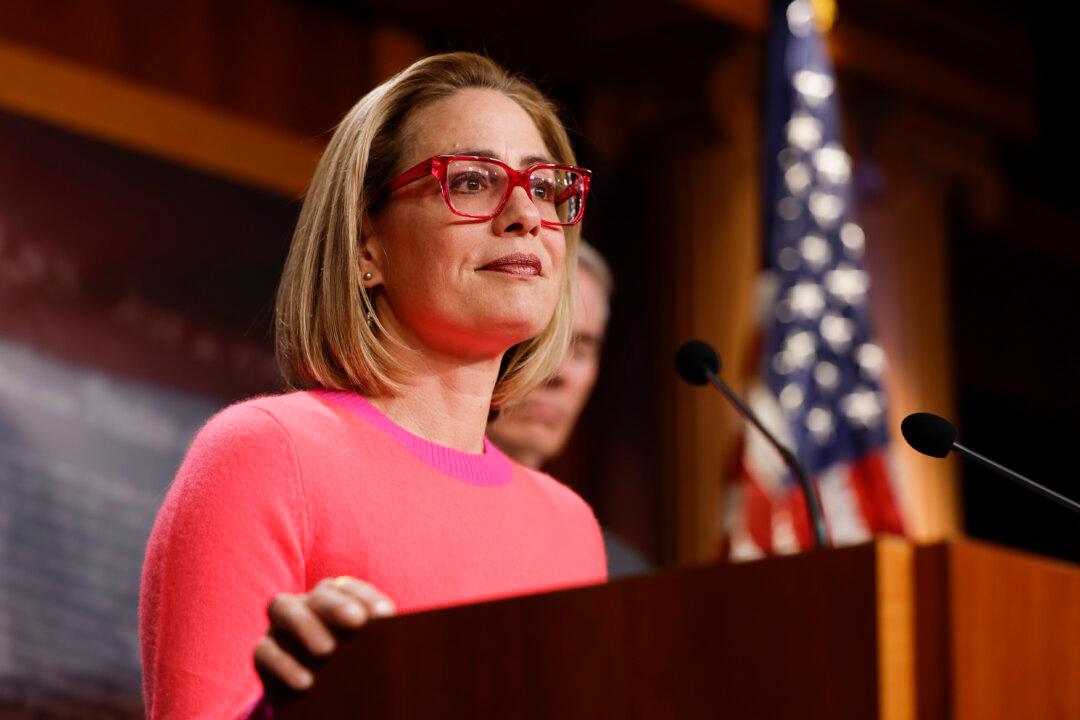Kari Lake is campaigning, she just hasn’t clarified if she’s stumping for former President Donald Trump as a potential vice presidential candidate or, perhaps, running for the U.S. Senate.
Blake Masters, defeated in a competitive 2022 Arizona U.S. Senate election by incumbent Democrat Sen. Mark Kelly (D-Ariz.), is being courted to run for the Senate in 2024 but has not confirmed or denied his interest.





